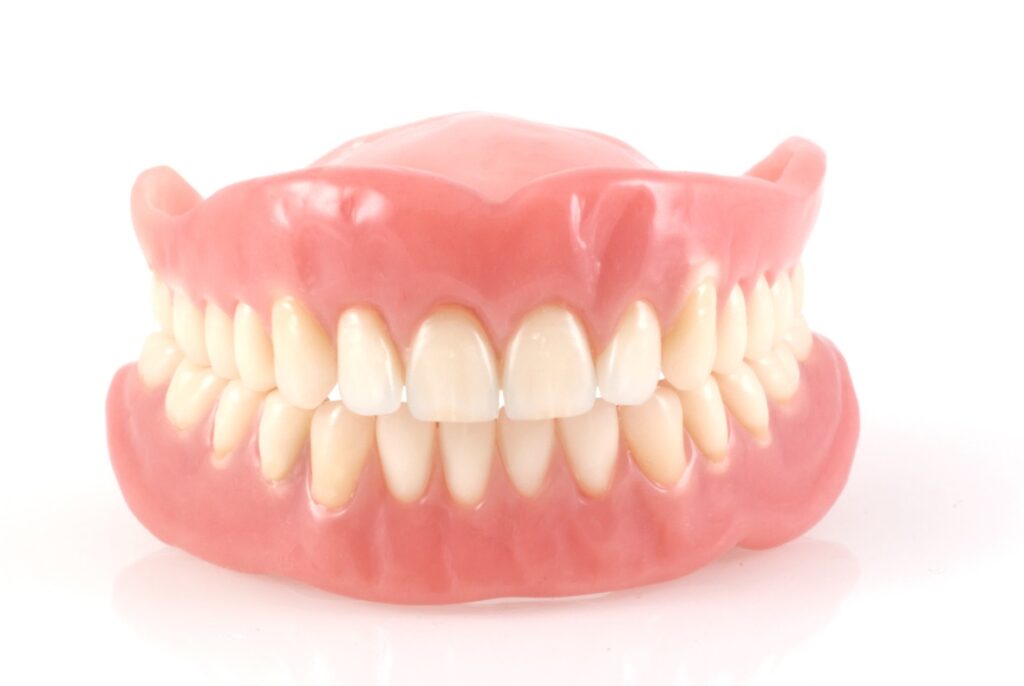Some people respond to dentists’ recommendations that they wear dentures with genuine offence. Even today, there’s a stigma about the whole subject that some find difficult to sidestep.
Dentures have long been associated with one of the more unpleasant aspects of the advanced aging process. Not to mention, assumed to be anything but attractive or realistic in nature, and a one-way ticket to lifelong eating difficulties.
Truth is, some of the above may have been true in decades gone by. But when you consider the sophistication of today’s oral health technology, logic dictates that dentures have also come a long way.
Which they have – they’re practically unrecognisable from the dangers of yesteryear.
Of course, nobody would like to face the prospect of having to wear dentures, given the choice. This is where good oral health and hygiene for a lifetime can help, as can positive lifestyle habits in general. A dentist recommended electric toothbrush, a state-of-the-art water flosser, watching what you eat and drink – all important contributions to the cause.
But even if you take fantastic care of your teeth throughout your entire life, some potential problems are inevitable. You may find yourself being recommended dentures by your dentist at any point in life, which really isn’t the end of the world.
To help put things into perspective, here’s a brief look at seven common myths about dentures you may have bought into:
- Dentures are unattractive and fake looking
First up, contemporary dentures look absolutely nothing like their dated counterparts. In fact, the most advanced dentures on the market are practically indistinguishable from the real thing. They’re made to replicate the look of real teeth so accurately that nobody other than you will know you’re wearing them.
Low-cost, low-quality dentures that look 100% synthetic are still available, but most self-respect and dentists refuse to issue them.
- Eating is difficult with dentures
This particular myth stems from the fact that while getting used to a new set of dentures, eating can indeed be tricky. After all, you’ve technically kitted out your mouth with a new set of teeth, so you’ll need to make adjustments accordingly. But what’s this initial period has passed, eating with benches is a walk in the park.
In addition, there are no specific restrictions with regard to what you can and cannot eat while wearing dentures. Some foods were basically out of the question with the dated dentures of decades gone by, but no such restrictions apply with today’s more sophisticated press their takes.
- Dentures are always slipping and falling out
Ill-fitting dentures are really no laughing matter. Dentures that don’t fit poorly and securely can be uncomfortable, inconvenient and a genuine hazard to health. Thankfully, none of this needs to apply with contemporary dentures.
These days, orthodontic technicians go to extremes to ensure dentures fit with pinpoint precision. They are meticulously engineered to fit the exact composition of the wearer’s mouth, eliminating the risk of them slipping or falling out accidentally.
- Most dentures are uncomfortable to wear
This ties in with both of the above points, as there will always be a period of adjustment to traverse after being fitted with new dentures. During which, the whole thing may feel a little unusual, and could be described by some as uncomfortable.
But once this initial period of adjustment passes, you reach a point where you can’t even feel you’re wearing them. Again, this is because contemporary dentures are precision made to fit the exact geography of the wearer’s mouth. The days of generic one-size-fits-all dentures are gone – all good dentures these days are custom-made.
- Decent dentures are far too expensive
Over the years, the costs of top-quality dentures have come down considerably. The most technologically sophisticated inches on the market can still be quite expensive, but there are two things to bear in mind here. The first of which is, of course, that you cannot put a price on your own comfort, confidence and wellbeing. However much they cost, it’s a small price to pay for something so important.
Secondly, most dentists will happily arrange repayment plans for those who cannot afford to pay for their dentures outright. Typically with 0% interest payable, you can benefit from your cutting-edge dentures today, and pay for them over the course of a series of monthly instalments.
- Dentures make it difficult to maintain good oral hygiene
This myth stems from the fact that ill-fitting dentures once made it difficult for those wearing them to keep their mouths clean and fresh. With gaps and imperfections all over the place, food debris and general unpleasantness could quickly accumulate. This was one of several reasons why certain foods and drinks were considered incompatible with traditional dentures.
Today, high-end dentures have no bearing whatsoever on the oral hygiene of those wearing them. If anything, the fact that they can be taken out and sterilised can make them beneficial. You can eat what you like, you can clean your teeth in the normal way, and you can sterilise your dentures to keep them flawlessly hygienic.
- Dentures are for old people
Last up, dentures are associated with older people simply due to the elevated risk of tooth loss in later life. But to assume that dentures are only for older people is to miss the point entirely. Dentures can be fantastic for replacing one or more missing teeth, irrespective of the age of the wearer.
For a long list of reasons, tooth loss can occur at any time in life. You may suddenly find yourself missing one or more teeth, with little choice but to consider the options available. Should implants not be suitable for your requirements and/or your budget, a denture could be the next best thing.
Book a consultation with your dentist if you have any questions or concerns regarding dentures, or any other issues related to your oral health.
